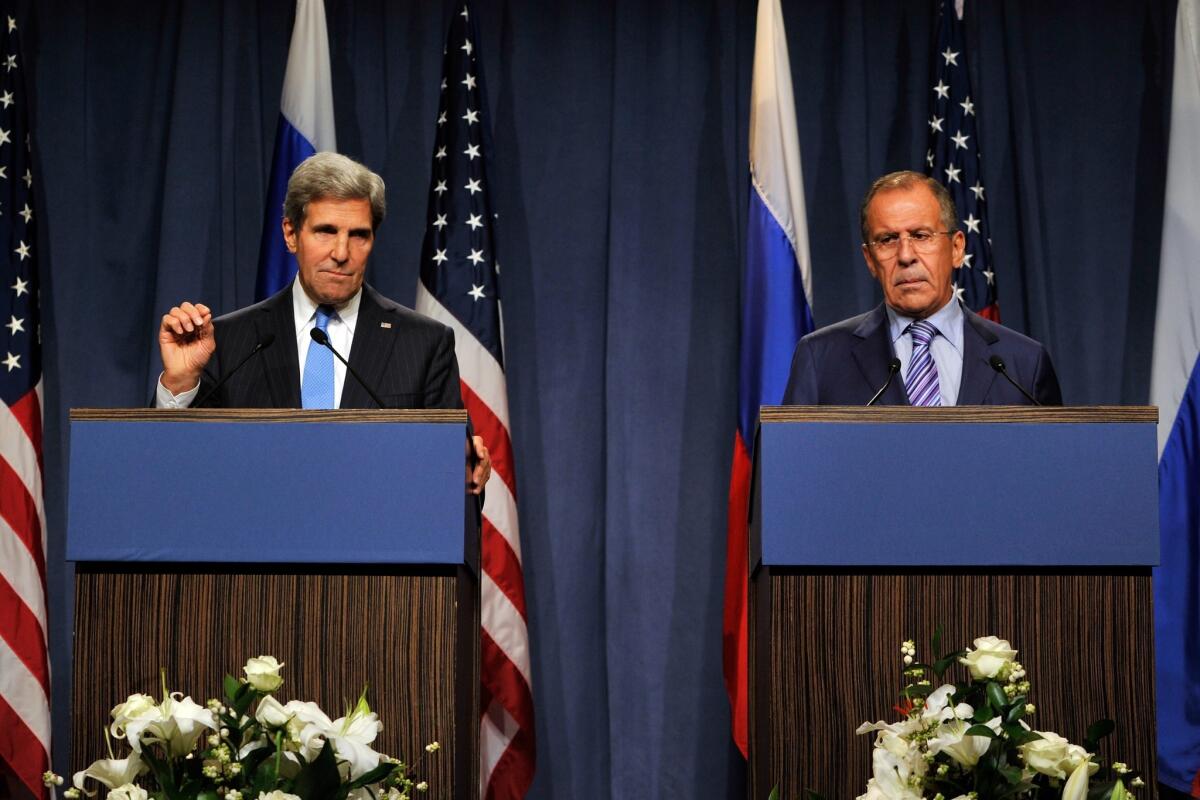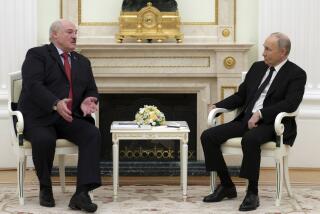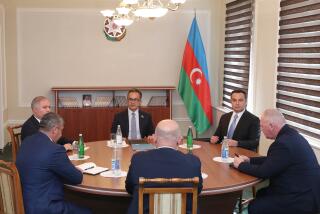As Kerry and Lavrov meet, Assad adds new condition to Syria deal

WASHINGTON – Secretary of State John F. Kerry and his Russian counterpart met for hastily arranged talks in Geneva in a push to disarm Syria of chemical weapons, even as Syrian President Bashar Assad warned that he wouldn’t surrender his toxic arsenal unless the Obama administration stopped arming rebels battling to overthrow his government.
Assad’s comments Thursday suggested another hurdle for a diplomatic proposal, and a disarmament process, already fraught with considerable risks. It underscored the limits of Moscow’s leverage over the embattled Syrian ruler, who faces a mortal threat from insurgents and their Western supporters.
Neither Kerry nor Russian Foreign Minister Sergei Lavrov responded to Assad’s demand when they met with reporters, and both sought to project optimism about resolving the international crisis that erupted after more than 1,000 Syrians were killed in a poison gas attack near Damascus last month.
“We do believe there is a way to get this done,” Kerry said. But he warned that if diplomacy failed, “force might be necessary to deter and degrade Assad’s capacity to deliver these weapons.”
“We proceed from the fact that the solution of this problem will make unnecessary” any U.S. airstrikes on Syria, Lavrov said.
The first round of negotiations, which involve large entourages of arms control experts and legal specialists, is expected to run until Saturday. It represents Moscow’s attempt to reclaim a dominant role on the world stage after years of decline. Stakes also are high for President Obama, who embraced the Geneva talks just as he stood to lose a crucial vote in Congress on authorizing missile strikes against Syria.
Diplomats moved on two tracks Thursday. In addition to the talks in Geneva, Syrian diplomats in New York gave U.N. Secretary-General Ban Ki-moon a document declaring Syria’s willingness to join the Chemical Weapons Convention, an international treaty that bans the production, storage or use of poison gas.
ALSO:
Chileans honor those tortured, killed after 1973 military coup
Indian police praised for handling of bus rape; other cases languish
American militant on ‘most-wanted’ list reportedly killed in Somalia
More to Read
Start your day right
Sign up for Essential California for news, features and recommendations from the L.A. Times and beyond in your inbox six days a week.
You may occasionally receive promotional content from the Los Angeles Times.






